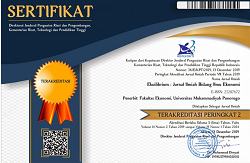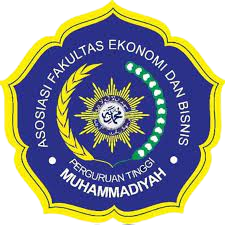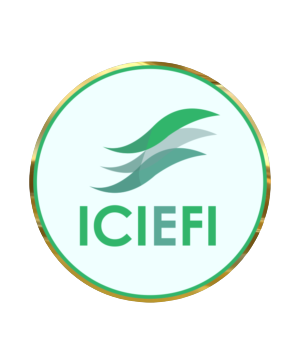Sustainable Business Development Via Applying an Online Business Model for Gaining Benefit in Economics, Education, and Social Network
DOI: 10.24269/ekuilibrium.v18i1.2023.pp1-10
Abstract
Regional development includes infrastructure and information technology. Infrastructure, Information and Communication Technology (ICT) is worse in rural areas and small towns in Indonesia. One of such areas is the village of Menowo located in Magelang, Central Java Province, Indonesia. The purpose of this research is to study a contemporary phenomenon of the Blogger Village within its real-life content. In this research, a case study is described: a young man who was born in the village has started an “online business community”. Now, people call the Village Menowo “The Blogger Village”. Since 2014, more than 50 people in the Blogger Village have got their own revenue accounts for hundreds of thousands of U.S. dollars per month. The Blogger Community has contributed to reducing unemployment in the village. The study has found that the Blogger Community can provide additional income for Magelang SMEs. Magelang SMEs can use the profit margin of their businesses to update hardware and software including Internet information sources from anywhere. The study provides new information related to the regional development, local development, and complement economic empirical studies of a research that has been done before. The applied research is beneficial for the Government of Magelang to determine and develop policies of the regional economic development of Magelang and to establish appropriate programs and activities for developing the economy of the area. The research will also help eliminate the overlap among the existing rules both at central and local levels, as well as among sectors and agencies.
Keywords
References
- Adisasmita, Rahardjo, (2008), ‘Regional Development Concepts and Theories’, Graha Ilmu, Yogyakarta.
- Arsyad, Lincolyn, (1999), ‘Introduction to Regional Economic Planning and Development’, BPFE, Yogyakarta.
- Australian Government, ‘Online business’, http://www.business.gov.au/business-topics/businessstructures-and-types/online-business/Pages/default.aspx. (Accessed on 25 February 2016).
- Berry, Albert., et al. (2014), ‘Small and Medium Enterprise Dynamics in Indonesia’, Buletin of Indonesian Economic Studies, Talyor and Francis Online., Vol. 37 No. 3 pp. 363-384.
- Dirjen PPI – Ministry of Telecommunication and Informatics, (2011), ‘Publication Report Edition of Desember’, pp.1-84.
- G. Celebic and D.I. Rendulic, (2011), ‘Basic Concepts of Information and Communication Technology and Book: IT desk’, Zagreb, Infokatedra, center for adult education.
- Kemenkominfo, (2016), ‘Indonesia Ministry of Telecommunication and Informatics: Internet users reach 82 millions’. http://kominfo.go.id/index.php/content/detail/3980/Kemkominfo%3A+Pengguna+Internet+di+Indonesia+Capai+82+Juta/0/berita_satker#.VTRSVPC8Pcc. (Accessed on 25 February).
- Lokantara, I., Mayasari, D., & Amo, F. (2022). Creative Economic Subsector Mapping in Central Bangka District and its Resistance in the Covid-19 Pandemic. Ekuilibrium: Jurnal Ilmiah Bidang Ilmu Ekonomi, 17(1), 77-90. Retrieved from https://journal.umpo.ac.id/index.php/ekuilibrium/article/view/4451
- Maulid, L., Bawono, I., & Sudibyo, Y. (2021). The Effect of Government Expenditure on Economic Growth in Indonesia. Ekuilibrium: Jurnal Ilmiah Bidang Ilmu Ekonomi, 16(1), 24-38. doi:https://doi.org/10.24269/ekuilibrium.v16i1.3172
- Nogi, Hessel S, Tangkilisan. (2005), ’Public Management’, Jakarta, Grasindo. (in Indonesian)
- R.K. Yin. (2003). ‘Case Study Research: Design and Methods’, London-UK, SAGE Publications.
- R. Ramirez, (2001) ‘A Model for Rural and Remote Information and Communication Technologies: A Canadian Exploration’, Telecommunications Policy, vol 25, no. 5, June 2001, pp. 315-330.11 In 2015, there was regulation: SE-06/PJ/2015 to levy for e-business. The Ministry of Finance, Ministry of Communication and Information, and Ministry of Coordinator for Economy Affairs are discussing the application of this regulation.
- Rosyidah, M. (2022). Designing MSMEs Strategies to Survive in the New Normal Era with a SWOT-TOPSIS Approach. Ekuilibrium: Jurnal Ilmiah Bidang Ilmu Ekonomi, 17(1), 64-76. doi:https://doi.org/10.24269/ekuilibrium.v17i1.4348
- Sushanti, I., & Santoso, E. (2020). Stakeholders Management Strategy Model as an Effort to Develop Partnerships. Ekuilibrium: Jurnal Ilmiah Bidang Ilmu Ekonomi, 15(2), 118-137. doi:https://doi.org/10.24269/ekuilibrium.v15i2.2581
- Tambunan, Tulus, (2012), ‘Micro, Small and Medium Enterprises in Indonesia: Important Issues’, LP3ES, Jakarta.
- Tarahaat and Drishtee (2001), ‘TECH TALK: Transforming Rural India’, http://emergic.org/read/2099/ (Accessed on 25 February)
- T. Fizzanty; R. Manalu; N. Laili and A. Santoso, (2011) ‘Innovation Process and Incentive Mechanism in Creative Industry’, Jakarta, LIPI Press.
- United Nations Development Programme (2001) Accenture; the Markle foundation, ICT for development: dynamic opportunities, New York
- Yuka, Anugerah, Prasetyo, Andjar. (2016). ‘Gaining Benefits of Economics, Education, And Social Network By Applying Online Business Model in the Blogger Village – Magelang – Indonesia’. Proceedings. Asean Forum on ICT.
Refbacks
- There are currently no refbacks.

This work is licensed under a Creative Commons Attribution-ShareAlike 4.0 International License.













